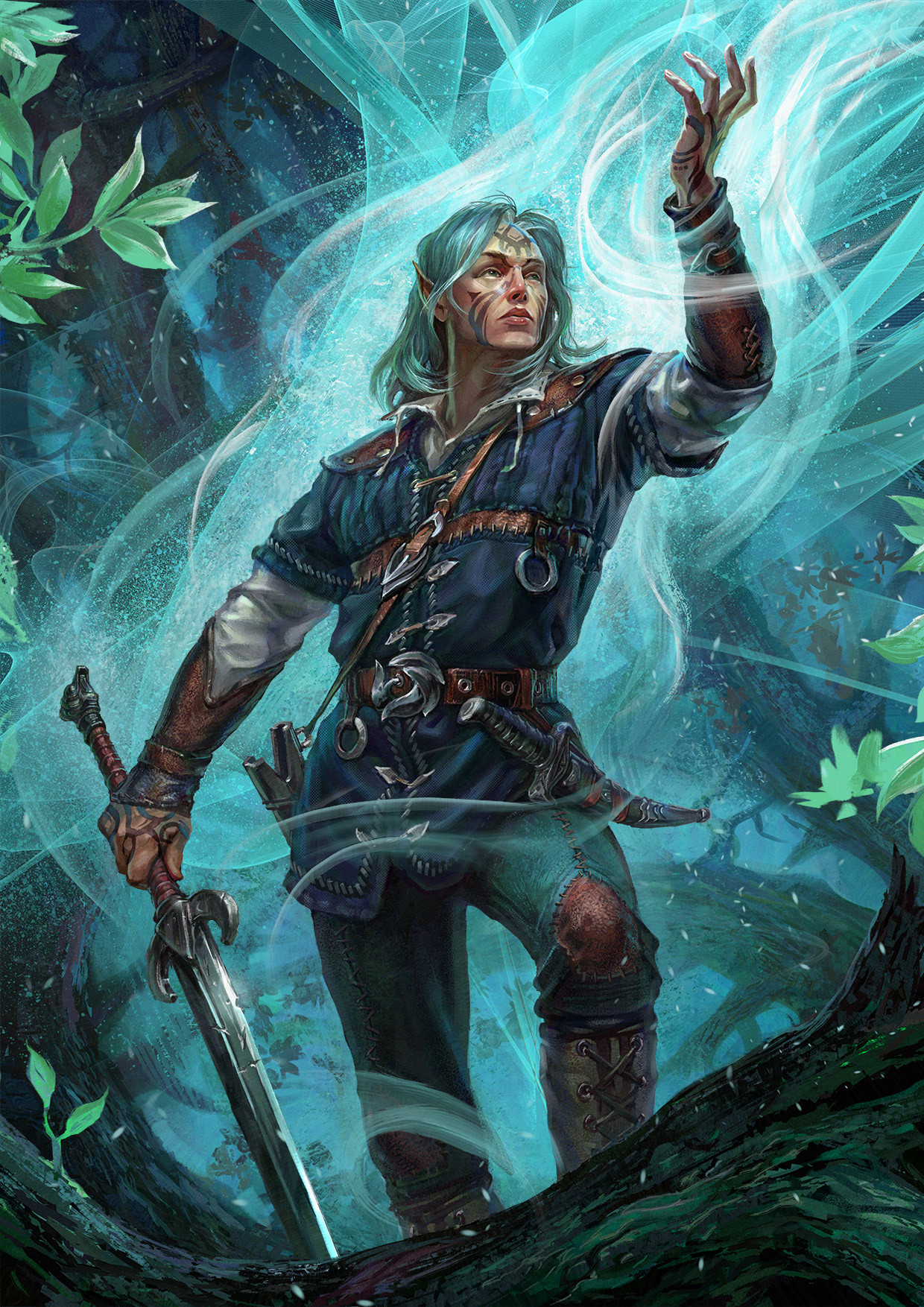
PART 1
The Class


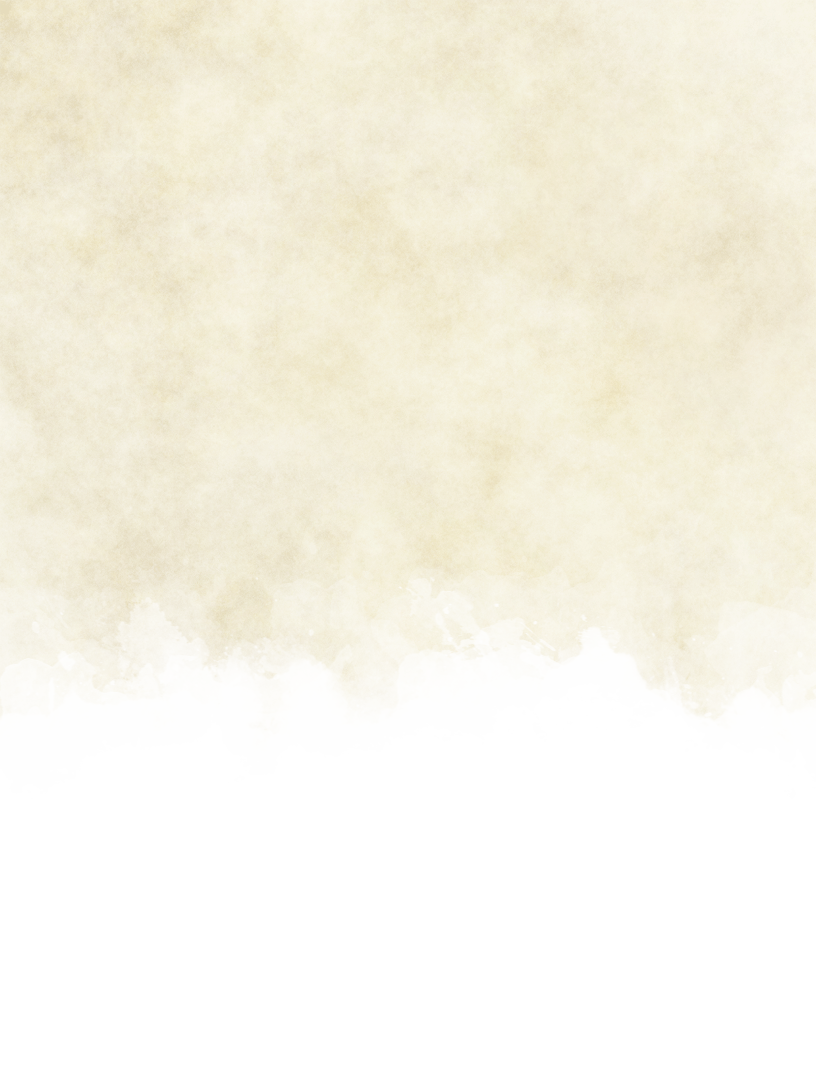
Introduction
Deep in the heart of the forest, a battle rages between a halfling and a pack of corrupted wolves. As the pack attempts to close in on the determined warrior, she slips away from their grasp, swiftly climbing to the treetops and drawing her bow.
Above, on a forlorn mountaintop, a lone human warrior continues his steady ascent to reach the ancient ruins as his wolf companion climbs alongside him, both undeterred by the unforgiving rocks or the freezing winds. Below, deep underground, a drow huntress lies in ambush, stalking the approaching targets from the shadows as they unknowingly wander into her grasp.
Far from the bustle of cities and towns, past the hedges that shelter the most distant farms from immeasurable terrors, amid the densely packed trees of trackless forests and across wide and empty plains, rangers fight to live on another day in the chaotic wilderness.
Expert Survivalists
Rangers are warriors who have taken on living in the wild and on surviving through all adversities. They do this through a unique bond that they have with the natural world, which enables them to adapt to their environment and use druidic magic, while also being moderately proficient in martial combat. This unique combination allows them to excel at exploring the wild and uncharted places of the world, and at standing up to the wide variety of threats that lurk beyond the reach of civilization.
Often, the Rangers use their expertise in this matter to help guard civilization against menaces from the wild, taking on greater odds and bigger threats than most could so that no others would have to. Just as much, though, they find themselves taking up arms against any intruders, humanoids or not, who foolishly dare upset the balance that the natural world sustains. Their magic bonds aids their speed and stealth in this hunt just as much as it does their survival.
Independent Adventurers
Rangers may find it difficult to live in certain areas, even with their potent druidic magic, yet most of them still prefer to live and survive alone. Mobility and independence take precedence to them over most potential companions, especially when food and shelter are short. However, if the terrain proves to be particularly harsh, or if a formidable threat has surfaced, they will gladly join forces with trusted sources nearby, like druidic circles. Other times, such alliances may be formed from shared goals and values, or simply out of mutual respect.
In contrast, Rangers are often hesitant to take on traveling with more adventurers (especially those city-born), convinced that anyone who whines and bickers about life in the wild is a burden. The limited resources in the wild are also a possible cause for a concerned Ranger to scrutinize any would-be companions. Rest assured, though, because any adventurer who can hold their own against the threats beyond civilization are ultimately a valuable asset to have.
Adaptive Guerilla Ranger
| Level | Prof. Bonus | Features | Aspect Modifier | Spells Known | 1st | 2nd | 3rd | 4th | 5th |
|---|---|---|---|---|---|---|---|---|---|
| 1st | +2 | Primeval Aspect, Adaptive Woodsman | 1 | --- | --- | --- | --- | --- | --- |
| 2nd | +2 | Fighting Style, Spellcasting, Adaptive Strike | 1 | 2 | 2 | --- | --- | --- | --- |
| 3rd | +2 | Ranger Bonds, Seasoned Woodsman | 2 | 3 | 3 | --- | --- | --- | --- |
| 4th | +2 | Ability Score Improvement | 2 | 3 | 3 | --- | --- | --- | --- |
| 5th | +3 | Extra Attack | 2 | 4 | 4 | 2 | --- | --- | --- |
| 6th | +3 | Empowered Aspect, Hardened Woodsman | 3 | 4 | 4 | 2 | --- | --- | --- |
| 7th | +3 | Ranger Bond Feature | 3 | 5 | 4 | 3 | --- | --- | --- |
| 8th | +3 | Ability Score Improvement | 3 | 5 | 4 | 3 | --- | --- | --- |
| 9th | +4 | 3 | 6 | 4 | 3 | 2 | --- | --- | |
| 10th | +4 | Protective Aspect, Adaptive Safeguard | 4 | 6 | 4 | 3 | 2 | --- | --- |
| 11th | +4 | Ranger Bond Feature | 4 | 7 | 4 | 3 | 3 | --- | --- |
| 12th | +4 | Ability Score Improvement | 4 | 7 | 4 | 3 | 3 | --- | --- |
| 13th | +5 | 4 | 8 | 4 | 3 | 3 | 1 | --- | |
| 14th | +5 | Adaptive Slayer | 5 | 8 | 4 | 3 | 3 | 1 | --- |
| 15th | +5 | Ranger Bond Feature | 5 | 9 | 4 | 3 | 3 | 2 | --- |
| 16th | +5 | Ability Score Improvement | 5 | 9 | 4 | 3 | 3 | 2 | --- |
| 17th | +6 | 5 | 10 | 4 | 3 | 3 | 3 | 1 | |
| 18th | +6 | Preserving Instinct | 6 | 10 | 4 | 3 | 3 | 3 | 1 |
| 19th | +6 | Ability Score Improvement | 6 | 11 | 4 | 3 | 3 | 3 | 2 |
| 20th | +6 | Primordial Paragon | 6 | 12 | 4 | 3 | 3 | 3 | 2 |
Creating a Ranger
As you create your Ranger character, consider the sequence of events that resulted in your character's bond with nature. Was your character born with a gift for communicating with nature? Had your character been taught the ways of the Rangers through a mentor or apprenticeship? Or perhaps they escaped to the wilds and learned everything themselves?
Why is your character inclined to face their opposition through guerilla tactics? Perhaps they had suffered a bad previous experience with combat tuition and seek to find their own path? Or are they wary of more intricate spellcasting, due to their own limited abilities or due to a spell that went wrong?
Quick Build
You can make a Ranger quickly by following these suggestions. First, make Dexterity your highest ability score, followed by Wisdom. (Some rangers who focus on two-weapon fighting make Strength higher rather than Dexterity.) Second, choose the Outlander background.
Class Features
Hit Points
- Hit Dice: 1d10 per Ranger level
- Hit Points at 1st Level: 10 + CON modifier
- Hit Points at Higher Levels: 1d10 (or 6) + CON modifier
Proficiencies
- Armor: Light armor, medium armor, shields
- Weapons: Simple weapons, martial weapons
- Tools: Gain proficiency with Herbalism Kit or Poisoner's Kit.
- Saving Throws: Strength, Dexterity
- Skills: Choose 3 from Animal Handling, Athletics, Insight, Investigation, Nature, Perception, Stealth, and Survival
Equipment
You start with the following equipment, in addition to the equipment granted by your background:
- 1 - (a) scale mail or (b) leather armor
- 2 - (a) two shortswords or (b) two simple melee weapons
- 3 - (a) a dungeoneer's pack or (b) an explorer's pack
- 4 - A longbow and a quiver of 20 arrows


Features
Primeval Aspect
At 1st level, your attunement with the untamed life within the wild lets you instinctively adapt its strengths yourself as the need arises.
Before you act on your turn, if you're not wearing heavy armor, you may choose to channel one of the following primeval aspects and gain their benefits. The chosen aspect persists until you choose to channel another one instead of it.
-
Gazelle's Gallop: During your turn, your movement speed is increased by 10 feet, and you gain a bonus to your AC and to your saving throws equal to your Aspect Modifier.
-
Falcon's Focus: Choose a creature you can see within 60ft of you. It suffers a penalty to attack rolls against you, and you gain a bonus to attack rolls against it, equal to your Aspect Modifier. While this aspect is active, instead of swapping to another aspect, you may reselect a target to focus on.
-
Chameleon's Cloak: You may attempt to hide as a bonus action, and you gain a bonus to the roll equal to your Aspect Modifier. If you're touching a wall or plant, this bonus is tripled.
Adaptive Woodsman
Also at 1st level, you have taken to life in harsh environments, and are uncannily resourceful in dealing with them.
By spending 1 hour or as a part of a short or long rest, you may create a makeshift item from foraging natural components and applying minor druidcraft. Each type of environment grants options unique only to them. When using the items you created, you are considered proficient in them.
Adaptive Woodsman Items
| Environment | Item Choices |
|---|---|
| Universal | Net, Hunting Trap, Fishing Tackle, Mess Kit, Rain Catcher |
| Arctic | Snowshoes w. crampons |
| Coast & Ocean | Wooden raft, 10 feet by 10 feet |
| Desert | A waterskin with water for 1 day |
| Forest | 10 ounces of menga leaves |
| Grassland | Brush, 10 feet by 10 feet |
| Mountain | Climber's Kit |
| Swamp | Theki root |
| Underdark | Wukka Nut |
Fighting Style
At 2nd level, you adopt a particular style of fighting as your specialty. Choose one of the following options. You can't take a Fighting Style option more than once, even if you later get to choose again.
- Archery. You gain a +2 bonus to attack rolls you
make with ranged weapons. - Blind Fighting. You have blind sight with a range of 10 feet. Within that range, you can effectively see anything that isn't behind total cover, even if you're blinded or in darkness. Moreover, you can see an invisible creature within that range, unless the creature successfully hides from you.
- Defense. While you are wearing armor, you gain a +1 bonus to AC.
- Druidic Warrior. You learn two cantrips of your choice from the Druid spell list. They count as ranger spells for you, and - Wisdom is your spellcasting ability for them. Whenever you gain a level in this class, you can replace one of these cantrips with another cantrip from the Druid spell list.
- Dueling. When you are wielding a melee weapon in one hand and no other weapons, you gain a +2 bonus to damage rolls with that weapon.
- Thrown Weapon Fighting. You can draw a weapon that has the thrown property as part of the attack you make with the weapon. In addition, when you hit with a ranged attack using a thrown weapon, you gain a +2 bonus to the damage roll.
- Two-Weapon Fighting. When you engage in two-weapon fighting, you can add your ability modifier to the damage of the second attack.


Spellcasting
By the time you reach 2nd level, you have learned to use the magical essence of nature to cast spells, much as a druid does.
Spell Slots
The Ranger table shows how many spell slots you have to cast your ranger spells of 1st level and higher. To cast one of these spells, you must expend a slot of the spell's level or higher. You regain all expended spell slots when you finish a long rest.
For example, if you know the 1st-level spell Animal Friendship and have a 1st-level and a 2nd-level spell slot available, you can cast Animal Friendship using either slot.
Spells Known of 1st Level and Higher
You know two 1st-level spells of your choice from the ranger spell list.
The Spells Known column of the Ranger table shows when you learn more ranger spells of your choice. Each of these spells must be of a level for which you have spell slots. For instance, when you reach 5th level in this class, you can learn one new spell of 1st or 2nd level.
Additionally, when you gain a level in this class, you can choose one of the ranger spells you know and replace it with another spell from the ranger spell list, which also must be of a level for which you have spell slots.
Spellcasting Ability
Wisdom is your spellcasting ability for your ranger spells, since your magic draws on your attunement to nature. You use your Wisdom whenever a spell refers to your spellcasting ability. In addition, you use your Wisdom modifier when setting the saving throw DC for a ranger spell you cast and when making an attack roll with one.
- Spell Save DC = 8 + your proficiency bonus + your Wisdom modifier
- Spell Attack Modifier = your proficiency bonus + your Wisdom modifier
Spellcasting Focus
At 2nd level, you can use a druidic focus as a spellcasting focus for your ranger spells. A druidic focus might be a sprig of mistletoe or holly, a wand or rod made of yew or another special wood, a staff drawn whole from a living tree, or an object incorporating feathers, fur, bones, and teeth from sacred animals.
Adaptive Strike
Starting at 2nd level, when you hit a creature with a weapon attack, you may expend a spell slot. If you do, your attack deals extra damage equal to 1d6 plus your Wisdom modifier, and also gains an additional effect that depends on your current environment. The same damage and effect are applied again for each spell slot level beyond 1st level, up to 3 additional times for a 4th level spell slot.
The attack is also considered magical for the purpose of overcoming resistance and immunity to nonmagical attacks and damage.
Any lingering effects last until the start of your next turn.
-
Arctic: The bonus damage becomes cold damage, and the target's movement speed is reduced by 10 feet.
-
Coast & Ocean: The bonus damage becomes thunder damage, and the target is pushed 15 feet away from you in a straight line.
-
Desert: The bonus damage becomes fire damage, and the target receives that amount as a penalty to attack rolls.
-
Forest: The bonus damage becomes poison damage, and the target's flying and climbing speeds are reduced by 20 feet.
-
Grassland: The bonus damage becomes bludgeoning, and and the target is pushed 10 feet in a direction you choose.
-
Mountain: The bonus damage becomes lightning damage, and another creature within 10 feet of the target also takes this damage.
-
Swamp: The bonus damage becomes acid damage, and the target takes that damage again at the end of their next turn.
-
Underdark: The bonus damage becomes psychic damage, and the target receives that amount as a penalty to their saving throws.
Ranger Bond
At 3rd level, your mystical bond with nature evolves into a higher form of your choice. You may choose a Ranger Bond from part 2 of this document, or a Ranger Conclave of your choice from D&D 5E. Your choice grants you features at 3rd level and again at 7th, 11th, and 15th level.
Seasoned Woodsman
Starting at 3rd level, whenever you make any skill check to interact with or recall information about plants or natural terrain, add to the result of that roll half of your Ranger level, rounded down.
(List of relevant skills: Acrobatics, Athletics, History, Investigation, Nature, Perception, Survival)
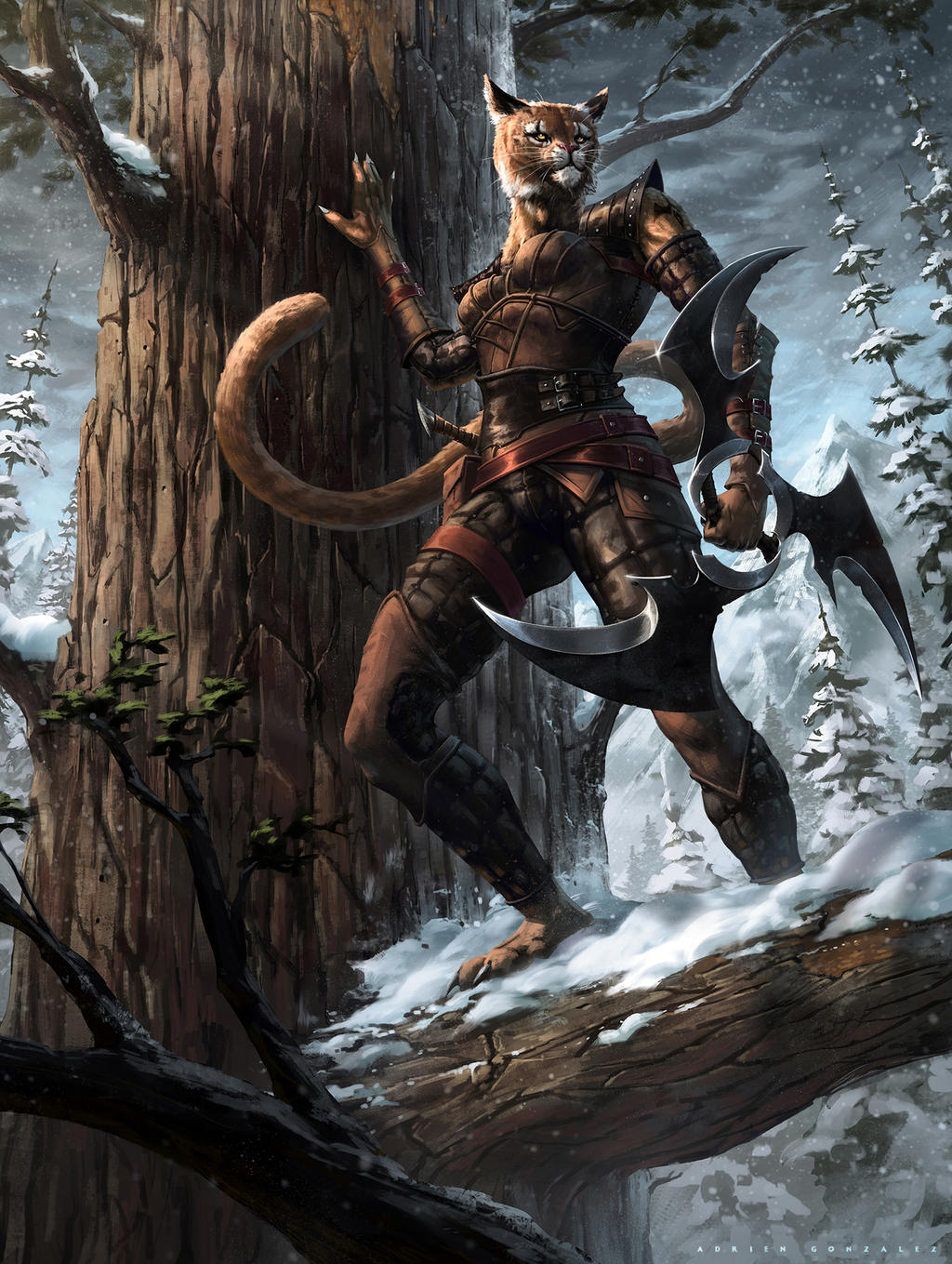

Extra Attack
Beginning at 5th level, you can attack twice, instead of once, whenever you take the Attack action on your turn.
Empowered Aspect
Starting at 6th level, your aspects gain additional benefits.
-
Gazelle's Gallop: During your turn, ignore all movement penalties from difficult terrain and plants, and you gain swimming and climbing movement speeds equal to your walking movement speed.
-
Falcon's Focus: The targeted creature also suffers a penalty on saving throws that you impose on it, equal to your Aspect Modifier.
-
Chameleon's Cloak: You don't suffer disadvantage to stealth from wearing armor, and if you move 0 feet on your turn, you may attempt to hide as a free action on that turn.
Hardened Woodsman
At 6th level, you can rebound quickly from travel conditions.
When finishing a short rest, your exhaustion level is reduced by 1, and you may remove a nonmagical disease from yourself or another creature resting with you.
Protective Aspect
Starting at 10th level, your aspects gain additional benefits.
-
Gazelle's Gallop: While this aspect is active, gain advantage on all saving throws versus plants and terrain.
-
Falcon's Focus: Gain a bonus to saving throws you roll against the targeted creature equal to your Aspect Modifier.
-
Chameleon's Cloak: After staying hidden for 1 minute, you are considered heavily obscured while remaining hidden.
Adaptive Safeguard
At 10th level, you are naturally attuned to the forces of nature, and can utilize your natural bond to keep the worst at bay.
You gain a unique benefit depending on your surrounding environment after finishing a long rest. The benefit lasts until you finish another long rest.
-
Arctic: You gain resistance to cold damage, and you don't suffer the effects of extreme cold.
-
Coast & Ocean: Your swimming speed is increased by 10 feet, and you may breathe freely underwater.
-
Desert: You gain resistance to fire damage, and you don't suffer the effects of extreme heat.
-
Forest: You gain resistance to poison damage, and you are considered lightly obscured for enemies farther than 30 feet from you.
-
Grassland: Your movement speed is increased by 10 feet, and your unimpeded sight range is increased by 1 mile.
-
Mountain: You gain resistance to damage taken from falling, and you don't suffer the effects of high altitude.
-
Swamp: Gain advantage on saving throws against poison, resistance to poison damage, and immunity to disease.
-
Underdark: You gain resistance to psychic damage. You also gain darkvision to 60 feet, or if you already have darkvision, it is instead extended by 30 feet.
Adaptive Slayer
At 14th level, the druidic magic empowering your attacks has become second nature to you.
Once per turn, you may grant Adaptive Strike from your environment to one weapon attack that you hit without expending a use for it.
Additionally, when expending a use of Adaptive Strike, you may now choose which environmental benefit to provide to the attack.
Preserving Instinct
At 18th level, the magic of your natural bond can now save you from certain catastrophe at even a fraction of a second.
When failing a saving throw, you may spend your reaction to become immune to its effects until the start of your next turn and move 10 feet away in a straight line in any direction.
Once you use this feature, you can't use it again until you finish a long rest.
Primordial Paragon
At 20th level, your primeval bond causes your attacks become unmatched in power and tear down your opponents' defense.
Your Adaptive Slayer now allows you to grant Adaptive Strike to up to two of your weapon attacks per turn without expending a use, up from one.
Furthermore, weapon attacks imbued with Adaptive Strike now overcome resistance and/or immunity to Piercing, Slashing, and Bludgeoning damage, as well as resistance and/or immunity to Adaptive Strike's damage type.
PART 2
Ranger Bonds

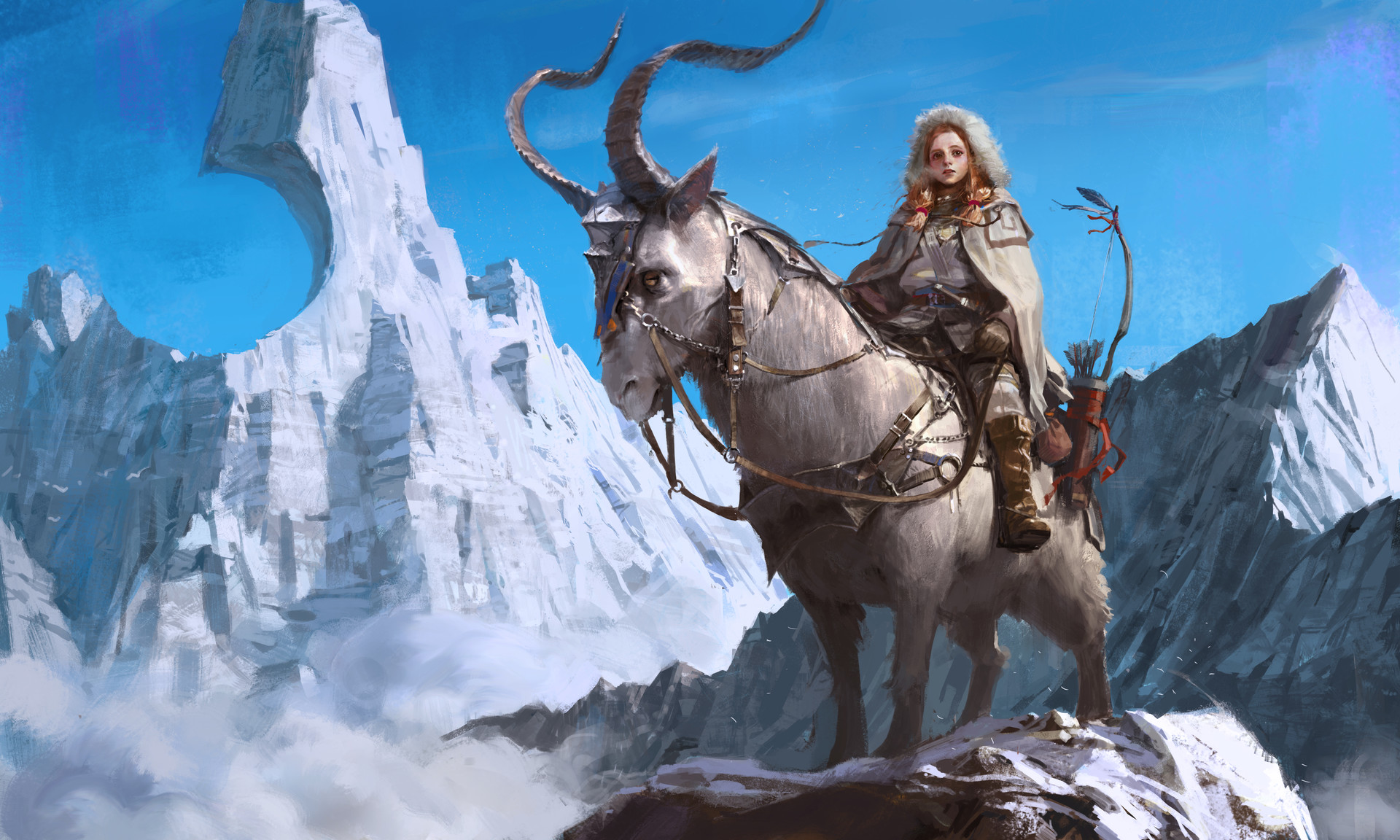

Ranger Bonds
Each Ranger has their unique, personal bond
with nature, which manifests in different ways and
puts emphasis on different aspects of the natural
world. However, most such bonds can be traced to a
pattern, which serves as an expression of one's
combat style or natural preference.
Rangers' relationship with one another does not
depend on their bonds. They may work with one
another to combat difficult living conditions or
adversaries, yet they may also find themselves in
violent disputes over food, water, or territory.
Bond of the Land's Guard
Some Rangers tend to develop a deeper bond with the land where they trained and honed their skills, while undergoing extensive training for that particular terrain. The influence
of that land's magic in them grows so intense that it alters their own magic and combat style, and so these Rangers take the unique charm of their most special place wherever in the world they may go.
Land's Boon
At 3rd level, choose a type of preferred terrain from the Adaptive Woodsman list. You always have access to that terrain's Adaptive Woodsman item choice, and when you use your Adaptive Strike, you may always choose that terrain's special effect instead of the usual effect. You also learn 1 language spoken in that region, as determined by your GM.
Additionally, when you hit an enemy targeted by your Falcon's Focus with a weapon attack, your attack deals 1d4 extra damage from that terrain's Adaptive Strike damage type, increasing to 1d6 at 11th level.
Furthermore, as an action, you may open your awareness to your surroundings, and sense the location of all places with your preferred terrain in a 1 mile radius around you for 1 minute.
Environmental Specialist
Also at 3rd level, while in your preferred terrain, you also gain the following benefits:
- You gain advantage on tracking creatures, and when succeeding you also learn their exact number, their sizes, and how long ago they passed through the area.
- Difficult terrain doesn't slow your group's travel.
- Your group can’t become lost except by magical means.
- Even when you are engaged in another activity while traveling (such as foraging, navigating, or tracking), you remain alert to danger.
Bond Spells
Also at 3rd level, your mystical connection to the land infuses you with the ability to cast certain spells. At 3rd, 5th, 9th, 13th, and 17th level you gain access to bond spells connected to the favored terrain where you became a ranger.
Once you gain access to a bond spell, you always have it prepared, and it doesn't count against the number of spells you can prepare each day. If you gain access to a spell that doesn't appear on the ranger spell list, the spell is nonetheless a ranger spell for you.
Arctic
| Ranger Level | Spell |
|---|---|
| 3rd | Armor of Agathys |
| 5th | Rime's Binding Ice |
| 9th | Sleet Storm |
| 13th | Ice Storm |
| 17th | Cone of Cold |
Coast & Ocean
| Ranger Level | Spell |
|---|---|
| 3rd | Fog Cloud |
| 5th | Misty Step |
| 9th | Wall of Water |
| 13th | Control Water |
| 17th | Maelstrom |
Desert
| Ranger Level | Spell |
|---|---|
| 3rd | Silent Image |
| 5th | Dust Devil |
| 9th | Wall of Sand |
| 13th | Blight |
| 17th | Antilife Shell |


by Craig J Spearing
Forest
| Ranger Level | Spell |
|---|---|
| 3rd | Entangle |
| 5th | Spider Climb |
| 9th | Plant Growth |
| 13th | Grasping Vine |
| 17th | Tree Stride |
Grassland
| Ranger Level | Spell |
|---|---|
| 3rd | Zephyr Strike |
| 5th | Gust of Wind |
| 9th | Wind Wall |
| 13th | Locate Creature |
| 17th | Far Step |
Mountain
| Ranger Level | Spell |
|---|---|
| 3rd | Earth Tremor |
| 5th | Spider Climb |
| 9th | Meld into Earth |
| 13th | Stoneskin |
| 17th | Wall of Stone |
Swamp
| Ranger Level | Spell |
|---|---|
| 3rd | Grease |
| 5th | Blur |
| 9th | Stinking Cloud |
| 13th | Vitriolic Sphere |
| 17th | Cloudkill |
Underdark
| Ranger Level | Spell |
|---|---|
| 3rd | Faerie Fire |
| 5th | Darkness |
| 9th | Intellect Fortress |
| 13th | Arcane Eye |
| 17th | Mislead |
Adventuring as the Land's Guard
Land's Guard don't have to adventure only in their preferred terrain. Instead, their preferred terrain is part of their backstory letting them be at their best.
Seasoned Specialist
At 7th level, your experience in your preferred terrain empowers you further in both body and mind.
When performing skill checks interacting with or recalling information about your preferred terrain, you gain advantage on the roll.
Also, when in your preferred terrain, your Gazelle's Gallop grants you an additional 10 feet of movement speed, and your Chameleon's Cloak grants you advantage on rolls to hide.
Environmental Safeguard
At 11th level, the protection granted by your preferred terrain is strengthened.
You always gain your preferred terrain's matching Adaptive Safeguard benefits, in addition to the ones from the current terrain. If you're located in your preferred terrain, instead those benefits are amplified: any damage resistances become immunities, and any distance measurements in feet are tripled or halved - your choice.
Land's Rebuke
At 15th level, whenever you or a friendly creature within 10 feet of you would take damage from your preferred terrain's Adaptive Strike damage type, you may spend your reaction. If you do, the damage is reduced to half that amount, rounded down, and when you hit your next weapon attack during your next turn, the reduced amount is also dealt as additional damage for that attack.
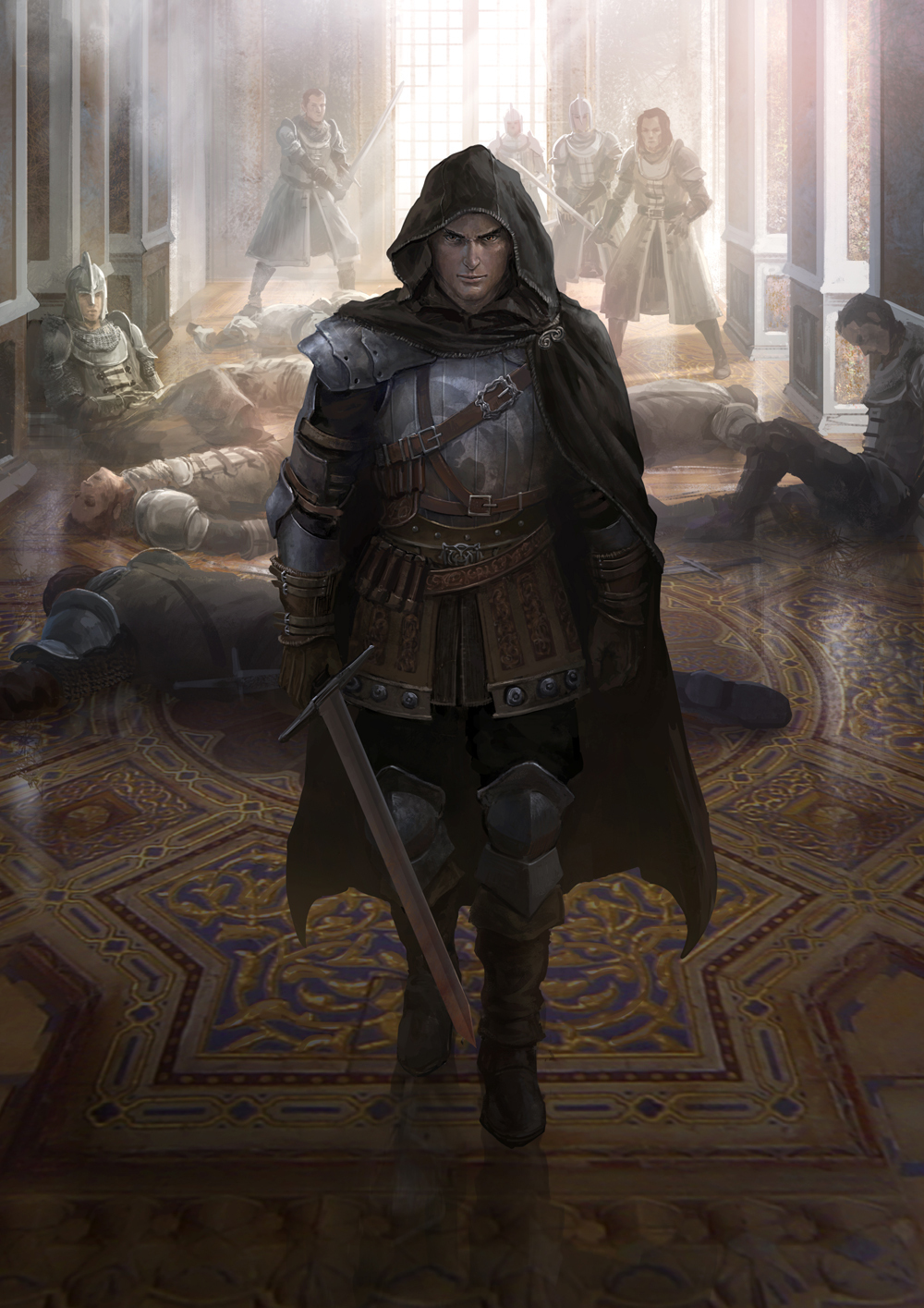

Urban Tracker
Some Rangers have a more tenuous and fragile with the natural world, causing them to grow more apart from it and not be able to express its full potential. Instead, they use their skills to acquire a disguise to blend in at urban areas, specializing in martial combat and performing tasks like tracking important figures or capturing outlaws. While other Rangers may mock them for their weak bond, claiming that they're no true Rangers, they probably couldn't care less, since they live in much better conditions and are far more renowned and wealthy than their peers.
Heavy Armor Training
At 3rd level, you've managed to train with heavy equipment while retaining some combat flexiblity.
Gain proficiency with heavy armor, and wearing heavy armor doesn't prevent you from channeling primeval aspects.
However, when wearing heavy armor, your default aspect becomes Falcon's Focus, and you may swap to other aspects a limited amount of times, equal to your Wisdom modifier. Regain all uses when finishing a long rest.
When wearing heavy armor, your primeval aspects are also weakened, as follows:
- Gazelle's Gallop: This aspect lasts only until the start of your next turn, then you must revert to Falcon's Focus.
- Falcon's Focus: Targets can only be selected from a range of 30 feet, instead of 60 feet.
- Chameleon's Cloak: While this aspect is active, your movement speed is fixed as 5 feet when not prone.
Adventuring as Urban Trackers
While they aren't as used to the wildlands as their Ranger peers, Urban Trackers can still have enhanced survival instincts that let them adapt to them, and while their skills and are tuned to hunt their favored enemies, they are still just as capable of fighting any creature they might face.
Humanoid Huntsman
At 3rd level, you hone the art of hunting the different peoples of civilization and those around it.
When targeting a humanoid creature (i.e. gnolls and orcs) with your Falcon's Focus, your Aspect Modifier is doubled, and you gain a bonus equal to your Aspect Modifier when performing Charisma (Deception or Intimidation) checks against your targeted creature.
You also gain advantage on Wisdom (Survival) checks to track humanoids, as well as Intelligence checks to recall information about them, and you learn Thieves' Cant, as well as one other city-spoken language.
Civilized Bond
Starting at 3rd level, your familiarity with cities and their mechanisms blends into your connection with the wild. You treat Urban areas as independent environments for your Adaptive abilities, and gain the following benefits when you are located in them:
- You gain Disguise Kit as a choice for Adaptive Woodsman, and you gain proficiency with Thieves' Tools.
- When using Adaptive Strike, the bonus damage is the same type as your weapon damage, and if the target is facing away from you, it's also tripled.
- When in urban areas, your Adaptive Safeguard becomes "You may attempt to hide even when being observed."
Huntsman's Expertise
At 7th level, your experience hunting humanoids has let you read their every move, granting you an edge when dealing with them.
When you roll an attack roll against a humanoid targeted by your Falcon's Focus, or when you roll for a skill check interacting with or recalling information about a humanoid, you may treat a roll of 9 or lower as a 10.
Extra Attack (x3)
Starting at 11th level, you can attack three times, instead of twice, when you take the Attack action on your turn.
Magic-User's Nemesis
At 15th level, you gain the ability to thwart others' magic.
When you see a creature casting a spell or teleporting within 30 feet of you, you can use your reaction to make one weapon attack against them before their spell completes. If the attack hits, their spell fails and is wasted, in addition to the attack's normal effects.
You may use this benefit an amount of times equal to your Wisdom modifier, and must finish a long rest to regain all expended uses.


Bond of the Monster Slayer
Monster Slayers are Rangers who use their natural bond to boost their experience fighting the most powerful and vicious of foes: titanic behemoths, looming goliaths, impervious dragons, and more. They are best when learning a single foe's weaknesses, then focusing their efforts on them in a constant barrage of attacks.
Bond Spells
Starting at 3rd level, you learn an additional spell when you reach certain levels in this class, as shown in the Monster Slayer Spells table. The spell counts as a ranger spell for you, but it doesn't count against the number of ranger spells you know.
Monster Slayer Spells
| Ranger Level | Spell |
|---|---|
| 3rd | Heroism |
| 5th | Blindness / Deafness |
| 9th | Feign Death |
| 13th | Elemental Bane |
| 17th | Hold Monster |
Slayer's Focus
Starting at 3rd level, you gain the ability to hone in on your foe and learn their every weak spot with each of your attacks.
As a bonus action, note down the creature currently targeted by your Falcon's Focus. While this benefit is active, each weapon attack you hit on that creature temporarily increases your Aspect Modifier by 1. This feature can't increase your Aspect Modifier to more than double its regular value. (for example, if your Aspect Modifier is normally 2, this feature can't increase it to be more than 4)
This benefit lasts until you switch Aspects or change your Falcon's Focus target, and in either case your Aspect Modifier resets to its regular value.
Big Game Hunter
Also at 3th level, you are studied in tracking and finding the large monsters that often end up as your foes.
You gain advantage on Intelligence (History) checks to recall information about Large or larger creatures. In addition, whenever you make a skill check to track a Large or larger creature, you gain advantage on the roll, and if you succeed, you also find out how long ago it passed through the area and approximately how far away it is.
Focused Defense
At 7th level, you learn to predict your target's pattern of attacks and defend against them.
Whenever the target of your Slayer's Focus hits you with an attack, you gain a bonus to AC against all its subsequent attacks for the rest of the turn equal to your Wisdom modifier.
Additionally, you have advantage on saving throws against being frightened by the target of your Slayer's Focus.
Instinctive Assessment
At 11rd level, you gain the ability to peer at a creature and magically discern how best to hurt it.
As a bonus action, choose one creature you can see within 60 feet of you. You immediately learn whether the creature has any damage immunities, resistances, or vulnerabilities and what they are. If the creature is hidden from divination magic, you sense that it has no damage immunities, resistances, or vulnerabilities. In either case, you gain advantage on your next weapon attack against that creature.
You can use this feature a number of times equal to your Proficiency Bonus, and regain all expended uses when you finish a long rest.
Slayer's Safeguard
At 15th level, your unmatched focus on your foe harnesses your instinct and magical skills to perfectly deflect your foe's attack.
When the target of your Slayer's Focus forces you to make a saving throw, you may spend your reaction to double your current Aspect Modifier for the purpose of that roll. After the result is determined, your Aspect Modifier is reset to its regular value.
Once you use this feature, you can't use it again until you finish a short or long rest.


Bond of the Metamorph
Metamorphs are Rangers who have embraced the essence of nature's change into their bodies and spirits. As they engage in combat with different circumstances, their bodies may quickly take on different shapes to better suit their goals. Fittingly, these Rangers tend to be wild and unpredictable, with some becoming emotional and turbulent.
The changes are a manifestation of their natural bond, and may come from any number of inspirations. These Rangers may change their body with features from animals or other natural creatures, or they may take on qualities from plants, or even terrain like lakes and boulders.
Bond Spells
Starting at 3rd level, you learn an additional spell when you reach certain levels in this class, as shown in the Metamorph Spells table. The spell counts as a ranger spell for you, but it doesn't count against the number of ranger spells you know.
Metamorph Spells
| Ranger Level | Spell |
|---|---|
| 3rd | Zephyr Strike |
| 5th | Spider Climb |
| 9th | Haste |
| 13th | Guardian of Nature |
| 17th | Mislead |
Primeval Metamorphosis
Starting at 3rd level, you gain the ability to change your body to better suit you in combat.
During your turn, you may use your bonus action. If you do, your body morphs, gaining additional benefits based on your active Primeval Aspect, which persist when you change to other aspects. This change lasts for 1 minute, until you morph again, or until you dismiss it as a bonus action.
You can use this feature a number of times equal to your Proficiency Modifier, and regain all uses when you finish a short rest.
- Gazelle's Gallop: Your jumping distance is doubled, and running starts for jumps and standing up from prone cost you only 5 feet of movement.
- Falcon's Focus: Your weapon attacks score a critical hit on a roll of 19 or 20, and when you hit a weapon attack, your attack deals an additional 1d6 damage.
- Chameleon's Cloak: Your become invisible, along with any equipment you are carrying. Attacking, casting spells, or taking damage ends the invisibility.
The powers' effect is as listed, but you may choose the form and appearance of each metamorphosis, barring any functional changes to the Aspect or the metamorphosis.
Common forms chosen: growing hooved legs for Gazelle's Gallop, growing feathers and sharp eyes for Falcon's Focus, growing adaptive scales for Chameleon's Cloak.


The intention with Primeval Aspects
The main goal of Primeval Aspects is to represent a shift in battle tactics for your character:
Gallop represents nimbleness and mobility, Focus represents focusing your combat efforts on one foe, and Cloak represents an indirect approach.
Feel free to change their title, appearance, or symbolism to fit this meaning for you and your character, especially if you're a Metamorph - as long as the new lore maintains the same function and abilities behind the representations. The same also goes for Metamorphosis and its visual effects: your character could even decide that activating a Metamorphosis never looks the same twice!
Metamorph's Senses
Also at 3rd level, your senses sharpen to detect abnormalities and false appearances of creatures that try to fool you. You gain advantage on skill checks to detect or track creatures that are shapechangers, invisible, or have a false appearance.
Additionally, you gain a sixth sense to trace illusory magic around you. You are aware if there are magical effects within 30 feet that attempt to fool your senses (i.e. Minor Illusion, Hallucinatory Terrain), and you advantage on skill checks that you roll to examine if an object, terrain, or creature are real.
Shifting Skin
At 7th level, your ever-changing physical traits allow you to catch your foes off guard, and keep your own senses sharp to get an edge in combat.
When you change to a new Primeval Aspect, your Aspect Modifier gains a temporary bonus equal to your Wisdom modifier, which lasts until the start of your next turn.
Improved Metamorphosis
At 11th level, you have solidified your mastery over your shapeshifting powers.
Your Primeval Metamorphosis may now last up to 10 minutes, and when morphed, you may use your bonus
action to enhance your transformation, gaining more additional benefits for 1 minute based on your active Primeval Aspect. Once you've used this feature, you can't
do so again until you finish a short or long rest.
- Gazelle's Gallop: You can move through the space of creatures and obstacles no wider than 10 feet, but can't end your turn in their location.
- Falcon's Focus: You gain a +4 temporary bonus to your Dexterity Score, and your maximum Dexterity Score is increased to 24.
- Chameleon's Cloak: Your invisibility from your metamorphosis now lasts even through attacking,
casting spells, and taking damage.
Instinctive Aspect
At 15th level, you have mastered the wild aspects to the
point where you slip between them without a thought.
Whenever you are subject to a saving throw or an enemy attack, you may spend your reaction to swap to another aspect or change your Falcon's Focus target before you roll.
PART 3
Animal Companion
and Variants
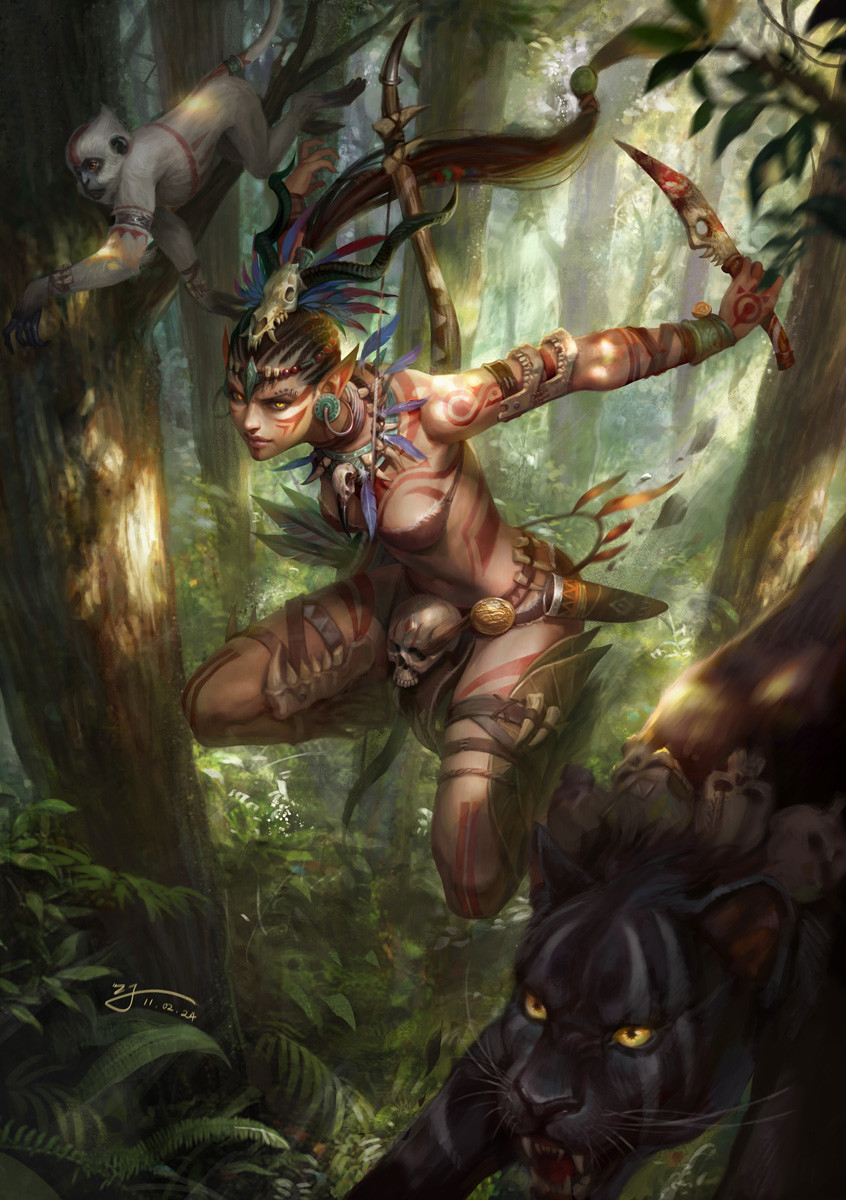


Variants
Not all Rangers develop the same way; just as their training environment may be different, so may be the choices they take to become a Ranger. While some may not feel the need to cast spells and instead choose to focus on martial combat, others may form a bond with and animal companion at the expense of diversifying their own bond with nature. These alterations in the Ranger bonds, called variants, provide a more fundamental way of changing your Ranger.
At the levels listed below, you may choose to give up some of your Ranger features to instead acquire variant features.
-
At 1st level, you may choose to give up a Core Feature for variant features. Foregoing features this way changes some of your future Ranger Bond choices, and restricts you from choosing some of them.
-
At 2nd level, you may forego your Spellcasting feature to instead gain variant features. Foregoing the Spellcasting feature this way also alters your Adaptive Strike.
-
At 3rd level, you may choose variant features as your Ranger Bond, gaining them at the appropriate levels instead of any other Ranger Bond.
Each Ranger variant has four features. Each feature is gained depending on the level you made your variant choice, as detailed in the Variant Features table.
Variant Features
| Feature | Core Feature Level | Spell-less Level | Ranger Bond Level |
|---|---|---|---|
| #1 | 1 | 2 | 3 |
| #2 | 6 | 6 | 7 |
| #3 | 10 | 10 | 11 |
| #4 | -- | -- | 15 |
Replacing Core Feature
At 1st level, if you choose to replace a core feature, you may choose from either your Primeval Aspect or your Adaptivity.
- Choosing Primeval Aspect means giving up your Primeval Aspect, Empowered Aspect, and Protective Aspect features. If you do, you may not choose the Monster Slayer and Metamorph Ranger Bonds. If you select Urban Tracker as your Ranger Bond, Humanoid Huntsman's bonus becomes equal to Proficiency Bonus instead of Aspect Modifier, and Huntsman's Expertise no longer provides bonus on attacks.
- Choosing Adaptivity means giving up your Adaptive Woodsman, Hardened Woodsman, and Adaptive Safeguard features. If you do, you may not choose the Land's Guardian Ranger Bond. If you select Urban Tracker, Civilized Bond provides you the bonuses in the appropriate levels as long as you're in an urban area.


Replacing Spellcasting
At 2nd level, you may choose to forego your Spellcasting feature. If you do, you also give up your Bond Spells feature, and your Adaptive Strike is changed: you no longer require a spell slot to use it, and you may use your Adaptive Strike a number of times equal to your Proficiency Modifier, refreshed after finishing a short or long rest. Additionally, you retain your Spell Save DC, and its calculation is done as normal for effects that would use it, with your Spellcasting ability being Wisdom.
Beast Master
Beast Masters ally themselves with animal wildlife by acting as a companion to an animal spirit that stands alongside them, often dedicating their Ranger Bond to do so. The two make an inseparable team of sword and claw against any threat that may pose a risk to the natural balance.
#1: Primal Companion
You magically summon a primal beast, which draws strength from your bond with nature. The beast is friendly to you and your companions and obeys your commands. Choose its stat block-Beast of the Land, Beast of the Sea, or Beast of the Sky-which uses your proficiency bonus (PB) in several places. You also determine the kind of animal the beast is, choosing a kind appropriate for the stat block, and it gains a number of Hit Dice [d8s] equal to your Ranger level.
In combat, the beast acts during your turn. It can move and use its reaction on its own, but the only action it takes is the Dodge action, unless you take a bonus action on your turn to command it to take another action. That action can be one in its stat block or some other action. You can also sacrifice one of your attacks when you take the Attack action to command the beast to take the Attack action. If you are incapacitated, the beast can take any action of its choice, not just Dodge.
Beast of the Land
Medium Beast
- Armor Class 13 + Proficiency Bonus (natural armor)
- Hit Points 5 + five times your ranger level
- Speed 40ft., climb 40ft.
STR DEX CON INT WIS CHA 14 (+2) 14 (+2) 15 (+2) 8 (-1) 14 (+2) 11 (0)
- Senses darkvision 60 ft., passive Perception 12
- Languages understands the Languages you speak
- Proficiency Bonus (PB) equals your PB
- Charge If the beast moves at least 20 feet straight toward a target then immediately hits it with a maul attack, the target takes an extra ld6 slashing damage. If the target is a creature, it must succeed on a Strength saving throw against your spell save DC or be knocked prone.
- Primal Bond Add your proficiency bonus to any ability check or saving throw the beast makes.
Actions
Maul. Melee Weapon Attack: your spell attack modifier to hit, Reach 5ft., one target. Hit: 1d8 + 2 + PB slashing damage.
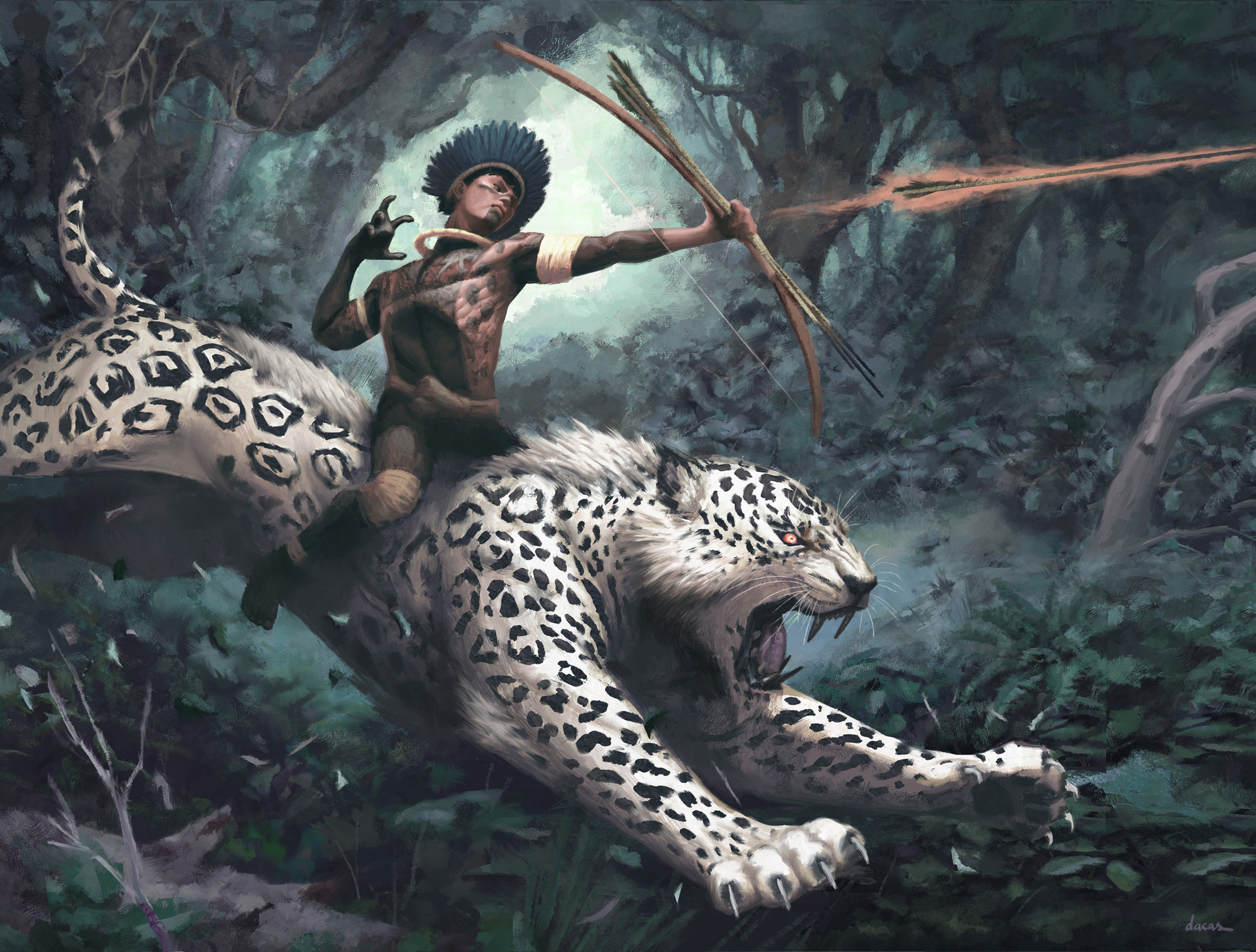
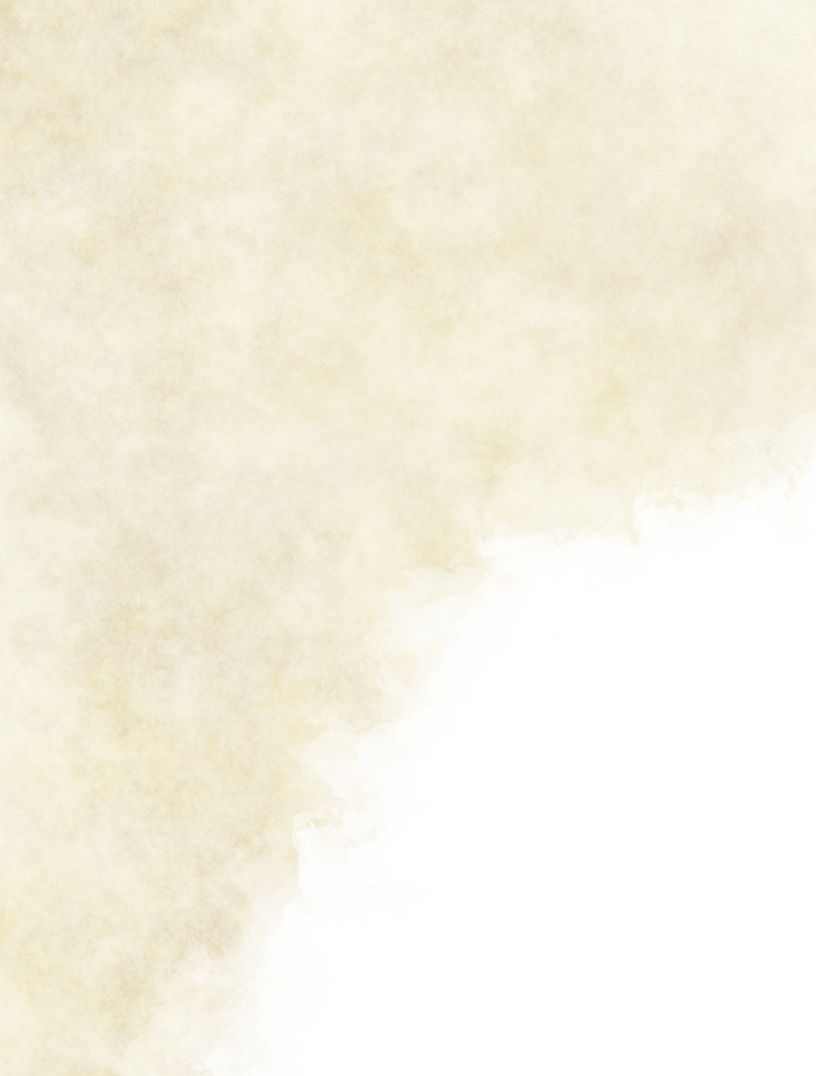
Beast of the Sea
Medium Beast
- Armor Class 13 + Proficiency Bonus (natural armor)
- Hit Points 5 + five times your ranger level
- Speed 5ft., swim 80ft.
STR DEX CON INT WIS CHA 14 (+2) 14 (+2) 15 (+2) 8 (-1) 14 (+2) 11 (0)
- Senses darkvision 60 ft., passive Perception 12
- Languages understands the Languages you speak
- Proficiency Bonus (PB) equals your Bonus
- Amphibious The beast can breathe both air and water.
- Primal Bond Add your proficiency bonus to any ability check or saving throw the beast makes.
Actions
Binding Strike. Melee Weapon Attack: your spell attack modifier to hit, Reach 5ft., one target. Hit: 1d6 + 2 + PB piercing or bludgeoning damage (your choice), and the target is grappled (escape DC equals your spell save DC). Until this grapple ends, the beast can't use this attack on another target.
Beast of the Sky
Small Beast
- Armor Class 13 + Proficiency Bonus (natural armor)
- Hit Points 4 + four times your ranger level
- Speed 5ft., swim 80ft.
STR DEX CON INT WIS CHA 6 (-2) 16 (+3) 13 (+1) 8 (-1) 14 (+2) 11 (0)
- Senses darkvision 60 ft., passive Perception 12
- Languages understands the Languages you speak
- Proficiency Bonus (PB) equals your Bonus
- Flyby The beast doesn't provoke opportunity attacks when it flies out of an enemy's reach.
- Primal Bond Add your proficiency bonus to any ability check or saving throw the beast makes.
Actions
Shred. Melee Weapon Attack: your spell attack modifier to hit, Reach 5ft., one target. Hit: 1d4 + 3 + PB slashing damage.
If the beast has died within the last hour, you can use your action to touch it and expend a use of your Adaptive Strike. The beast returns to life after 1 minute with all its hit points restored.
When you finish a long rest, you can change the
beast's stat block and form. The beast vanishes if you die.
#2: Enchanted Attacks
The spirit draws more power from your natural bond, allowing it to empower its attack with natural magic. When your primal companion hits with a weapon attack, you may apply Adaptive Strike to the attack without expending a use.
#3: Symbiotic Attunement
Your bond with the spirit grows even stronger, allowing it to gain for itself the benefits that nature bestows upon you. Your primal companion also gains your Primeval Aspect and/or Adaptive Safeguard benefits, and you may now use your Beast of the Land as a mount.
#4: Combined Instincts
Whenever your primal companion is hit by an enemy attack, you may spend your reaction. If you do, wild magic bursts from your companion, causing the attacking enemy to take 2d8 damage of your Adaptive Strike's type.
Conversely, when you are hit by an enemy attack, your primal companion may spend its reaction to cause the same effect to happen to the enemy attacking you.


Battle Master
Some Rangers come from a background that exposed them to extensive combat training. They, much like Battle Master Fighters, learn to employ different combat tactics to gain an advantage over their opponents, and many choose to rely on these techniques instead of any spellcasting ability.
#1: Combat Superiority
You learn maneuvers that are fueled by special dice called superiority dice.
Maneuvers. You learn three maneuvers of your choice. Many maneuvers enhance an attack in some way. You can use only one maneuver per attack. You learn an additional maneuver of your choice each time you gain a new feature from this variant, as shown in the Variant Features table. Each time you learn a new maneuver, you can also replace one maneuver you know with a different one.
Superiority Dice. You have three superiority dice, which are d6s and are expended when used. You regain all of your expended superiority dice when you finish a short or long rest. You gain an additional superiority die each time you gain a new feature from this variant, as shown in the Variant Features table.
Saving Throws. Some of your maneuvers require
your target to make a saving throw to resist the
maneuver's effects. The saving throw DC is equal
to your Spell Save DC.
#2: Adaptive Maneuvers
You learn to channel your natural bond to assist you in combat. When using your Adaptive Strike, you may
expend a superiority die instead of a use of Adaptive
Strike. If you do, you may roll your superiority die and
have the additional damage become equal
to that amount plus your
Wisdom modifier.
#3: Improved Combat Superiority
Your combat skill has improved and furthers your abilities. Your superiority dice become d8s.
#4: Relentless
When you roll initiative and have no superiority dice remaining, you regain 1 superiority die.
PART 4
Discussion
and FAQ
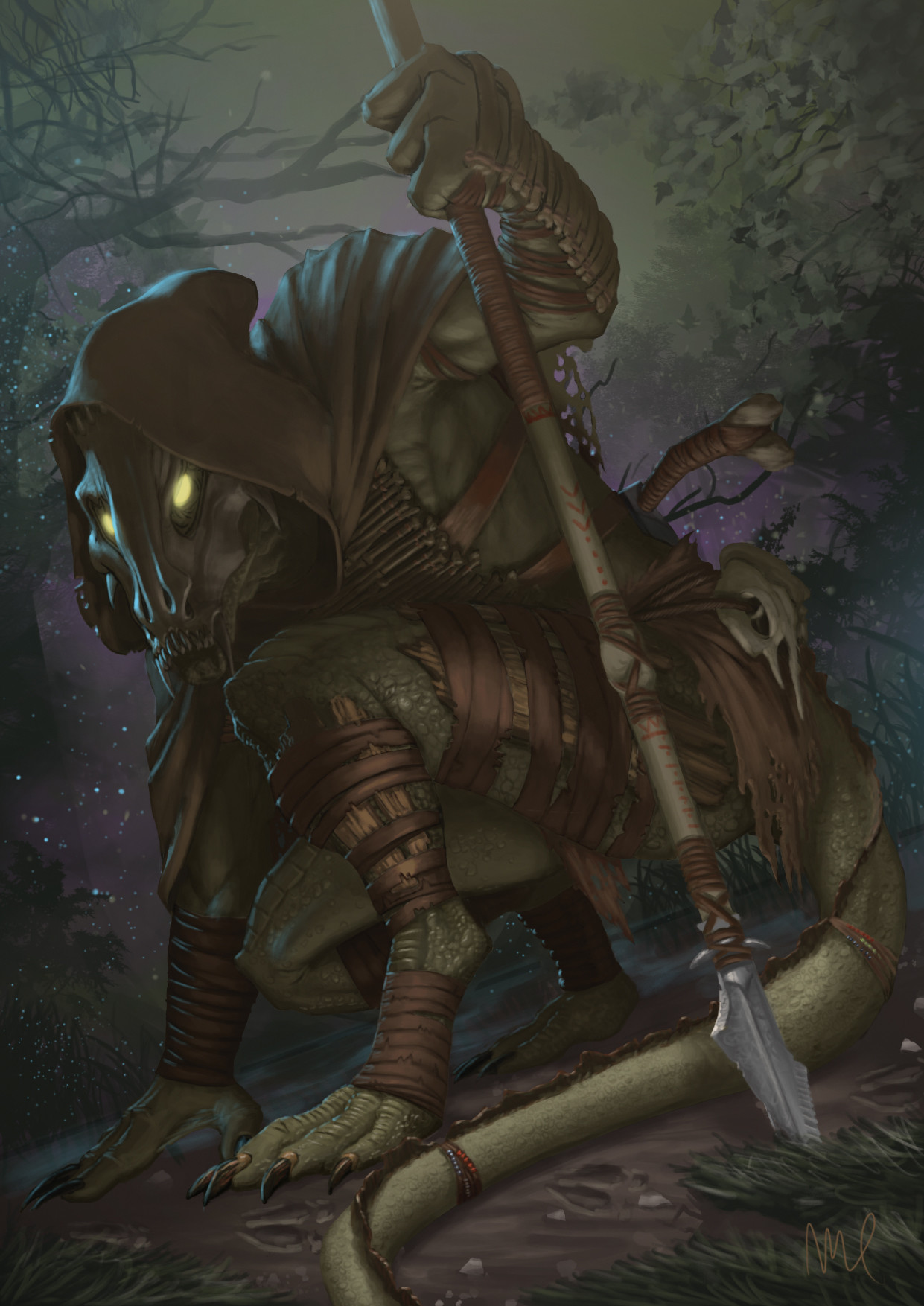


Discussion
Frequently Asked Questions
Q: How do I swap Primeval Aspects or change Falcon's Focus targets?
A: You may swap Aspects once at the start of your turn, no action or bonus action needed. To swap, choose the new Aspect to swap to and a valid target if needed.
Q: The surrounding area fits multiple environmental criteria, i.e. arctic mountain, desert seacoast. What happens?
A: The GM has the final say. They may pick one benefit to give you from the list, let you pick from several relevant benefits, or if you're lucky, maybe even give you both benefits!
Q: How do I differentiate between Adaptive Slayer and Adaptive Strike?
A: Adaptive Strike is a limited use feature that lets you empower weapon attacks that you hit, depending on the spell slot level that you expend, and on the environment. Adaptive Slayer lets you choose the benefit when you expend a use this way instead of relying on the environment to decide it.
Adaptive Slayer also lets you give one weapon attack that you hit per turn a 1st level Adaptive Strike benefit without expending a spell slot, but this benefit has to be decided by the environment without you changing it. Primordial Paragon improves this to let you empower up to two weapon attacks.
Q: What counts as terrain for the Ranger's features?
A: Mostly natural ground, natural walls or other rock formations, and other forms of natural environments, i.e. rivers, lakes, oceans, dead plants, and more. However, your GM always has the final say.
Q: Which resistances/immunities does Primordial Paragon offset?
A: Any attack receiving any environmental benefit from any Adaptive Strike, ignores resistance to bludgeoning, piercing, and slashing damage, and also to whatever damage your Adaptive Strike gains from your environment.
Q: Can I channel a Primeval Aspect while wearing heavy armor?
A: Only Urban Trackers may channel Aspects while wearing heavy armor, and in doing so their Aspects are severely limited. Other Rangers cannot channel Aspects while wearing heavy armor, even if they acquire in it somehow.
Q: Can I activate Primeval Metamorphosis multiple times, and what happens when I change to a different Aspect?
A: When you activate a new metamorphosis, the previous one ends. However, switching to another Aspect or changing Focus targets does not affect your Metamorphosis, so if you morphed in Gallop then switched to Focus on the next turn, the Gallop metamorphosis would remain.



Q: I'm not clear about Slayer's Focus and how it functions.
A: Your Aspect Modifier is by default equal to the number stated in the Aspect Modifier column in the Ranger Class Table in Part 1. After you activate your Slayer's Focus by using a bonus action, every attack you land on your Falcon's Focus target increases your Aspect Modifier by 1, but no higher than double than the usual number. For example, being a level 5 Ranger would mean that your Aspect Modifier is normally 2. Each hit would increase it by 1, up to a maximum of 4.
Q: Can I change my Primeval Aspect or my Focus target after I activate Slayer's Focus?
A: You still can, but if you do either of those, your Aspect Modifier will reset to its regular value, and you'll have to spend another bonus action to activate Slayer's Focus again.
Q: Can I choose multiple Variants for a single character?
A: Yes, but you must choose different features to replace for each of them. For example, you can choose both the Beast Master and Battle Master variants, but you can't choose to replace Spellcasting with both.
Q: Can I use the this homebrew in combination with other Ranger material?
A: The base class is compatible with the D&D 5e Ranger subclasses (or Conclaves), so there's no problem selecting a regular Ranger Conclave for the class in this homebrew. However, the subclasses in this homebrew directly reference the base class's features, like Primeval Aspect or Adaptive Strike, so consult your GM if you want to somehow combine between the original Ranger class and the subclasses in this homebrew.



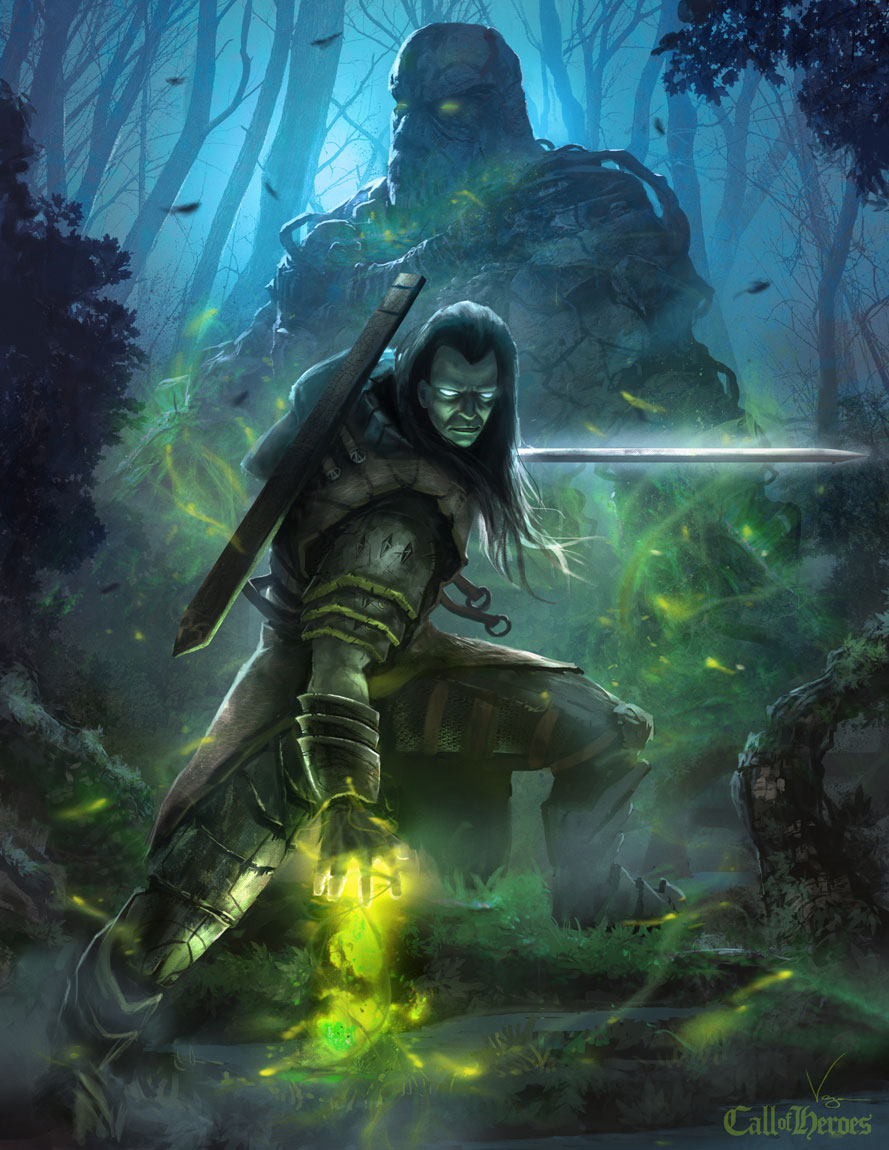
The End!
Thank you for reading my homebrew class!
I am constantly looking for feedback and to improve my works. This class will likely be rewritten when the mysterious One D&D will be released, so your suggestions will be welcome in the /r/UnearthedArcana thread or my own DMs.
If you're interested in reading more in detail about my thought process, analysis and opinion, please feel free to read this detailed document. It details my criticism of existing material, as well as sources of inspiration and ideas for my first build of this homebrew Ranger.
For any detailed questions, requests or other inquiry, please write a private message to /u/5eRangerDanger.
Cover Art: Earth Construct by Jose Vega